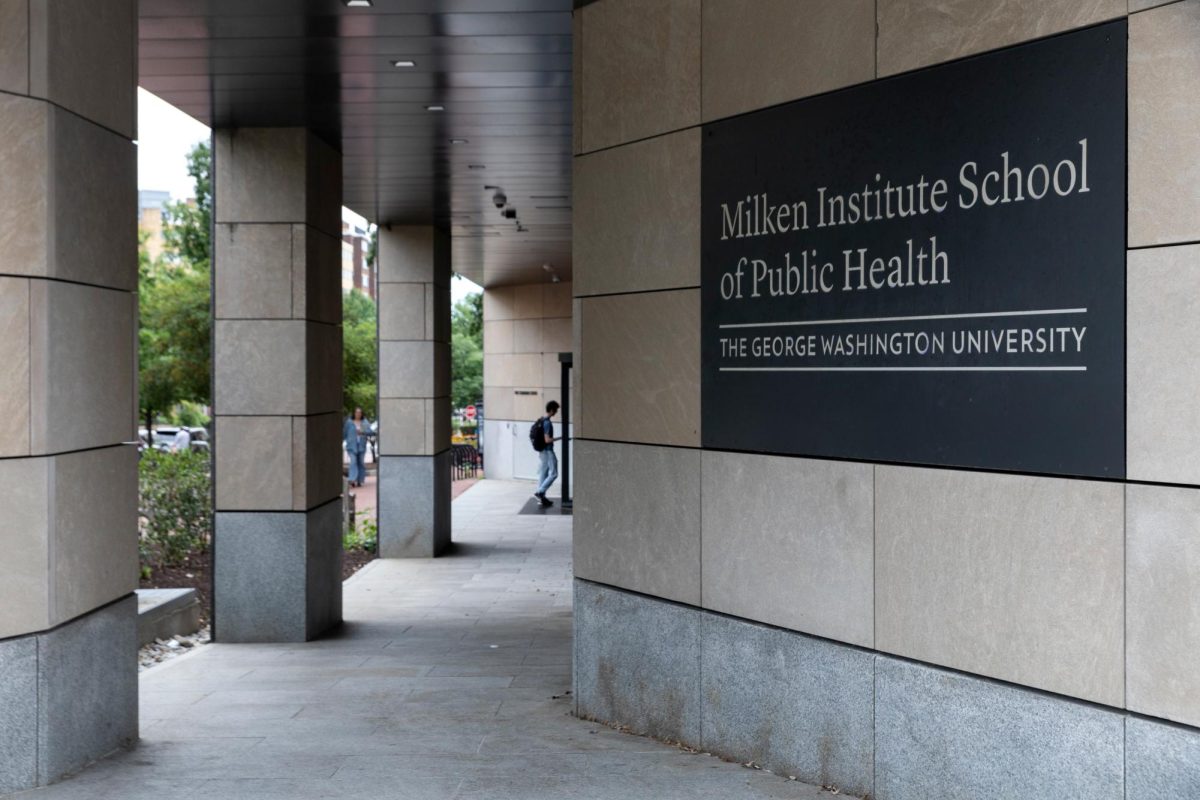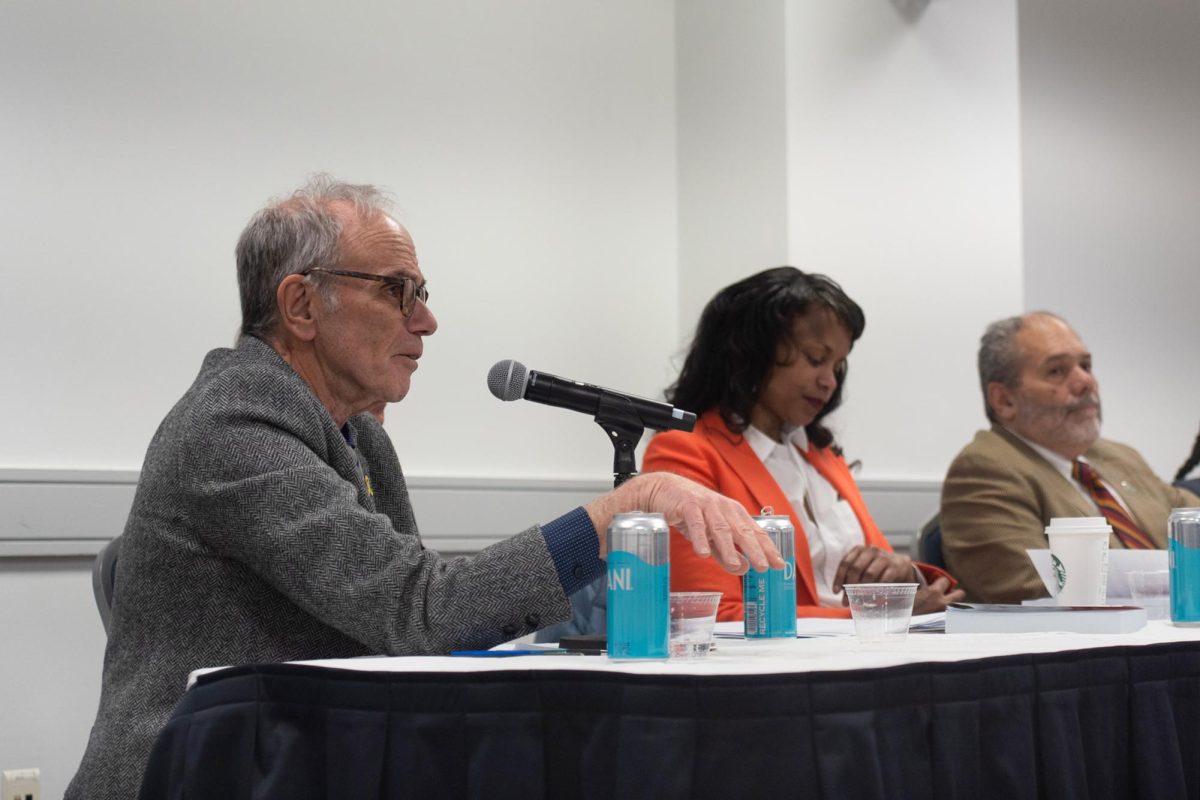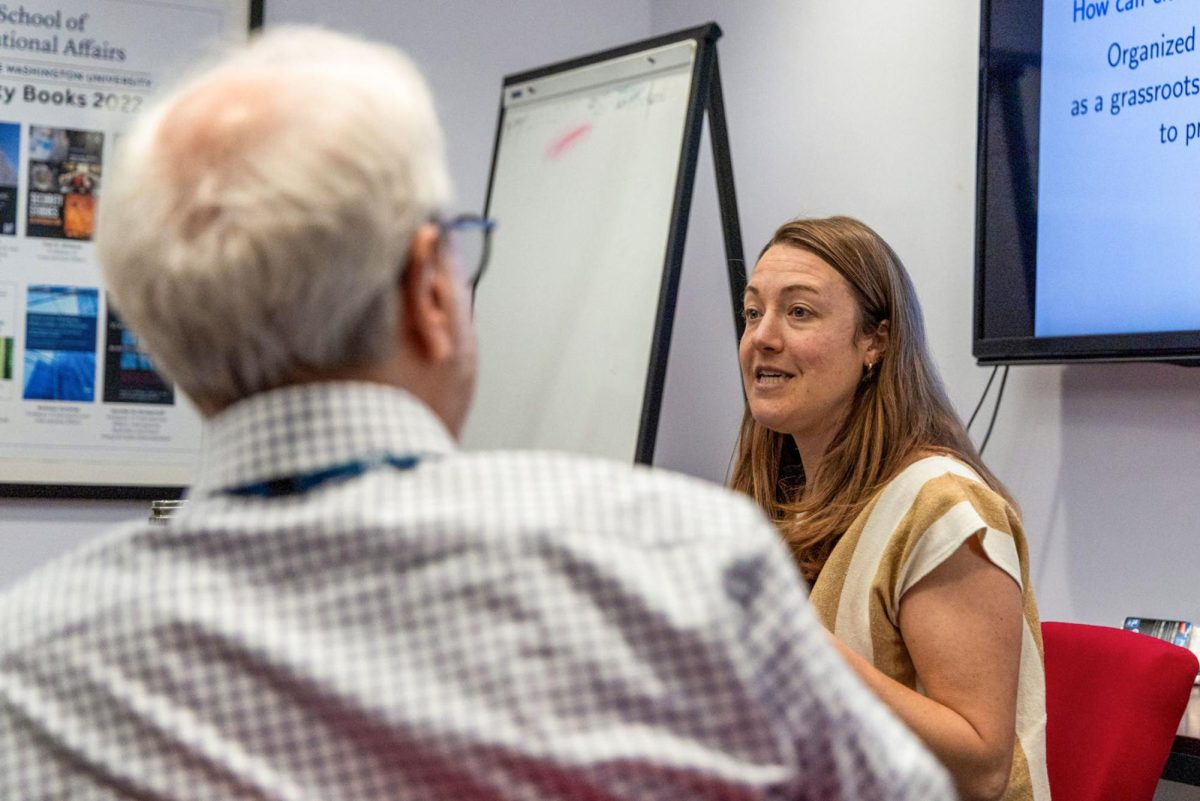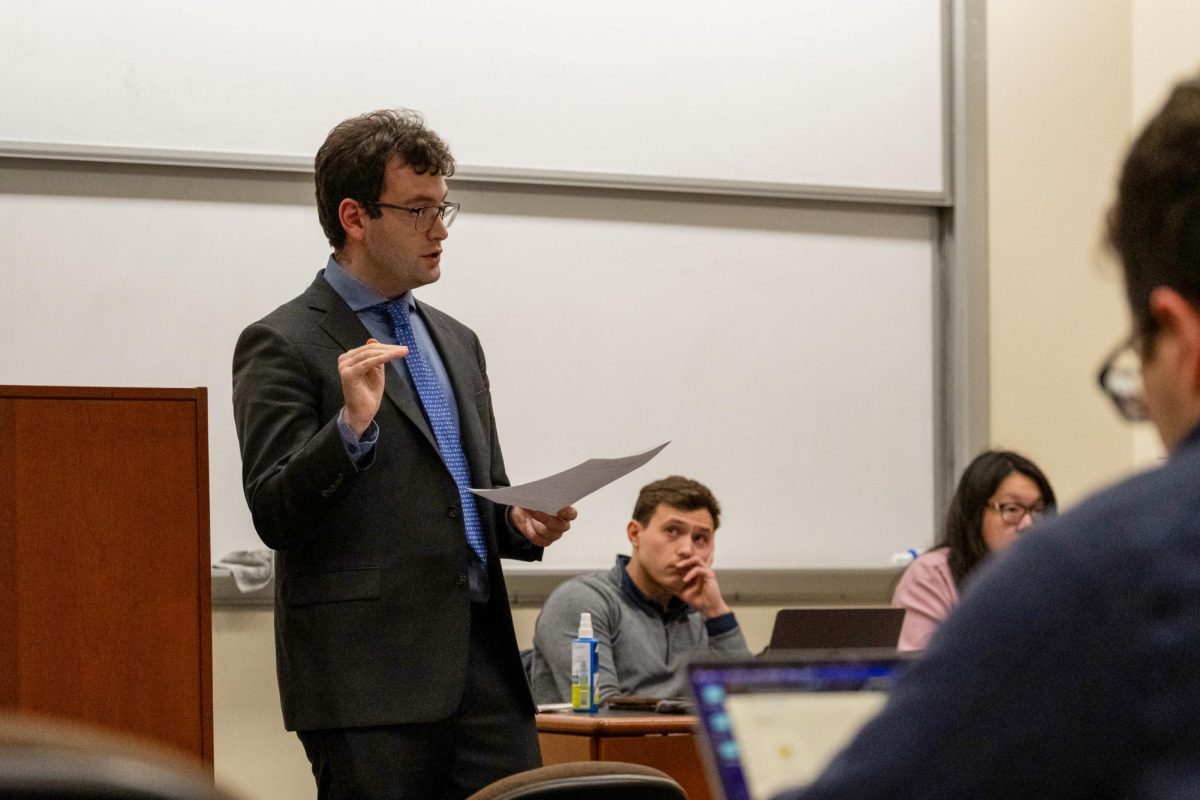Author John Green discussed global health advocacy and his hands-on experiences with the severity of tuberculosis across the globe at the Milken Institute School of Public Health on Tuesday.
Green talked about the cost and availability inequalities that can limit access to health care for tuberculosis with Allegra Mbwetshangol, the president of the GW Public Health Student Association, and Partners in Health Associate Director of Health Policy and Advocacy Vincent Lin. The event, titled “A Conversation with John Green: Advocacy for Global Health Equity,” was hosted by the public health school, the Sumner M. Redstone Global Center for Prevention and Wellness and the PHSA as part of National Public Health Week programming and was moderated by Timothy Holtz, Redstone’s chair.
Green released his book “Everything is Tuberculosis” in March, which examines the history of tuberculosis and chronicles the story of Henry Reider — a tuberculosis patient Green met in Sierra Leone whom he formed a close friendship with. Tuberculosis, a bacterial infection that primarily affects the lungs, is the deadliest infectious disease in the world despite being treatable through a months long rotation of antibiotics, with 1.25 million people having died from the disease in 2023 alone.
“There’s no excuse for people dying of tuberculosis in 2025,” Green said. “We’ve known how to cure this disease since the 1950s, so why are over a million people dying of tuberculosis?”
Green said he works with Partners in Health, which according to Lin is an international nonprofit organization that seeks to bring modern medicine to at-risk communities and emphasizes social justice in public health through things like lobbying Congress. Green said he has worked with PIH to fight tuberculosis worldwide and reduce maternal mortality in Sierra Leone through fundraising and by visiting tuberculosis hospitals.
Green said he initially thought he was solely a novelist, but members of his community told him early in his career that he should use his platform in more impactful ways — which led him to start his educational Youtube channel CrashCourse with his brother Hank. He said his job as a novelist was to bridge “empathy gaps,” the concept of people imagining themselves as a character in a novel, and said he has applied that concept to health advocacy.
“That’s the magic of reading,” Green said. “It shrinks the gap between people and allows you to become someone else.”
Green said meeting Reider, who eventually recovered from drug-resistant tuberculosis, changed his life and caused him to become more of a public advocate by encouraging him to research the current global state of tuberculosis. Green said the greatest challenges in achieving global healthy equity are racism, colonialism and instances of wealthy people losing interest in solving a health problem, which causes the rest of the world to follow suit.
Green said he included Reider’s story in his book because it was necessary to humanize the global fight against tuberculosis — taking it from statistics to a story about human life.
“If you tell the story of one person, you can tell the story, sometimes, if you do it right, of many people, and that just moves us differently,” Green said.

Green said the prominence of tuberculosis is due to a resource allocation problem and the underdevelopment of new tuberculosis drugs and said research on and treatment for the disease does not receive enough money or attention from those in power. He said the resources needed to solve public health problems are “less limited” than they have ever been but that they are not being properly allocated.
He said the government has not radically cut spending but has instead shifted priorities away from global human health and science and towards national defense and agencies like the U.S. Immigration and Customs Enforcement.
President Donald Trump significantly reduced the U.S. Agency for International Development, a government agency that provides foreign aid to countries in need, and has cut funding for scientific research at the National Institutes of Health via executive orders. Trump has also shown intent to expand the budget of the defense department to record highs and invest in new detention facilities for ICE.
Green said the cost of tuberculosis treatment is out of reach for many because corporations inflate the price of care. He said Reider was close to death before he recovered because he could not afford treatment.
“I know that he’s my friend, and I know that when he was on his deathbed, not because the solution to his illness was unavailable or because we had to fly to the moon to get it or because it was made of platinum but because corporations said that it should cost $1,200. That’s why he was dying. It was because there was no $1,200 to save his life,” Green said in reference to Reider. “I know that that’s unjust.”










